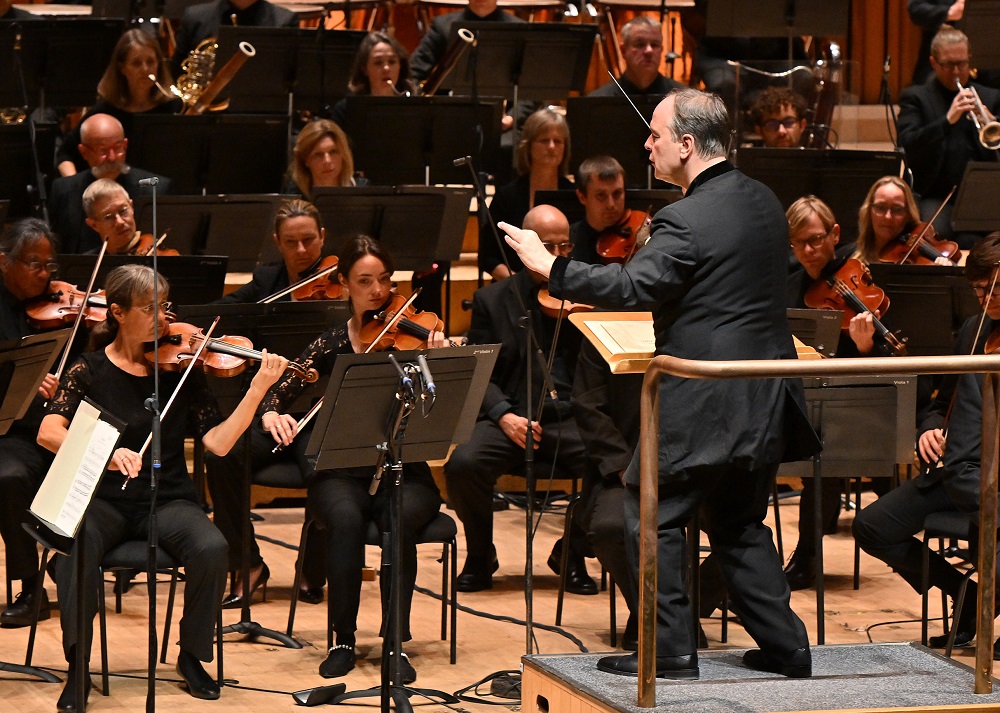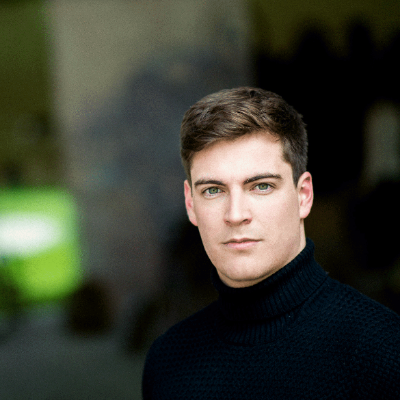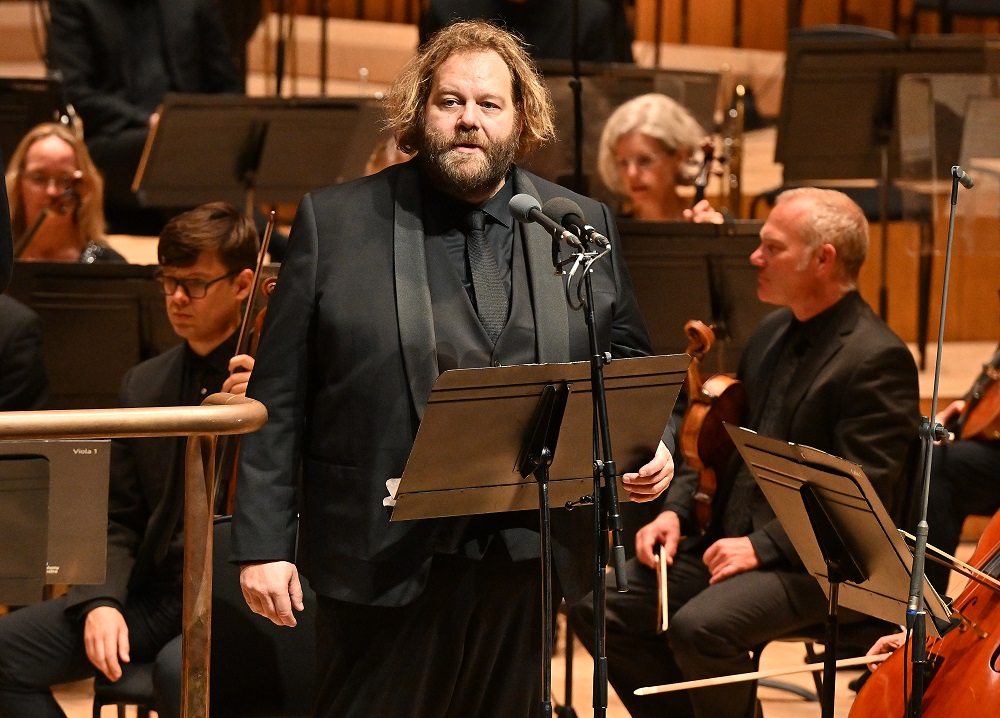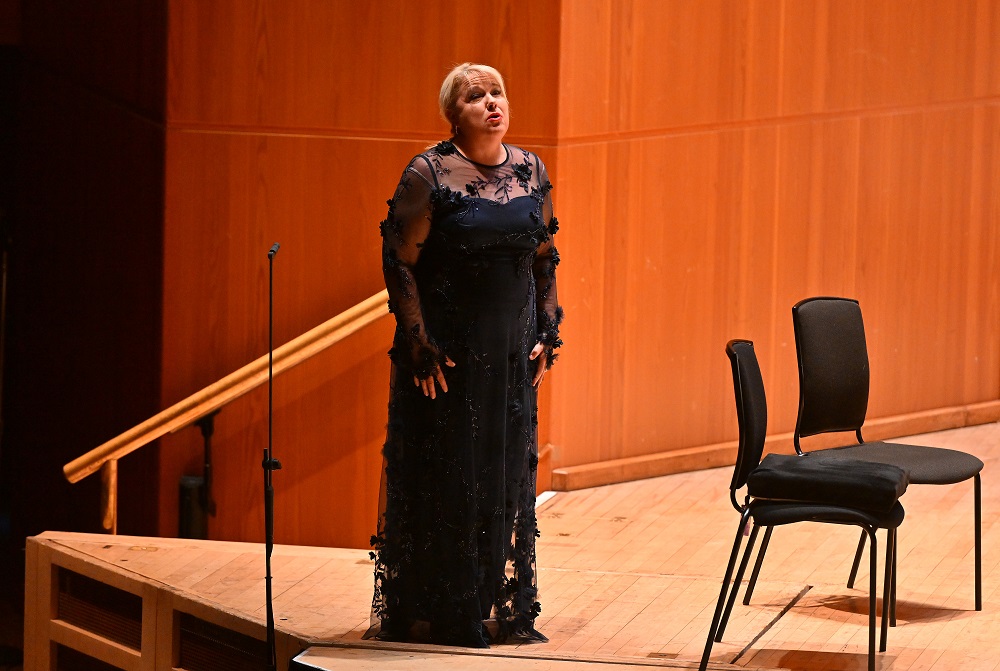Total Immersion: Sibelius the Storyteller, Barbican review - a feast of sagas and psychic masterpieces | reviews, news & interviews
Total Immersion: Sibelius the Storyteller, Barbican review - a feast of sagas and psychic masterpieces
Total Immersion: Sibelius the Storyteller, Barbican review - a feast of sagas and psychic masterpieces
Orchestral, choral, song and melodrama: the gamut of the Finn's utterly individual world
If there’s a dud or a dullard among Sibelius’s 116 official opus numbers, I haven’t heard it. Yet catching even many of the outright masterpieces live in concert isn’t easy; the brevity that can show us a world in under 10 minutes makes some difficult to programme.
All hail, then, to the BBC and scholar/biographer Daniel Grimley for mapping the Finn’s legendary universe in three concerts of wall-to-wall Sibelius and another placing his two main pupils’ choral music alongside his own.
Missing Grimley’s morning introduction was excusable: at exactly that time I was submitting to the pneumatic-drill judders of an MRI scan. But I’m thankful to hospital staff for giving me an earlier slot as I’d have missed one of the four main events. The sequence was perfect: songs and melodramas from students of the Guildhall School of Music & Drama, the first of Sakari Oramo’s concerts with the BBC Symphony Orchestra giving us symphonic poems that hardly ever get programmed (when did you last hear that soulful work of genius The Bard in concert?), the BBC Singers in choral works and the evening concert in which Oramo and his orchestra (pictured below) were joined by his soprano wife, the riveting performer Anu Komsi. A good way to celebrate the 2011 event which got him the post of the BBCSO’s still-adored Chief Conductor, where we first heard Komsi embody the creation-myth Luonnotar alongside songs by Saariaho, the Third Symphony and Bax’s Tintagel. 
Her biggest moment in the spotlight, Nights of Jealousy, is a headily romantic narration with piano trio (violinist Violetta Suvini, cellist Gabriel Francis-Dehqani and pianist Luke Lally Maguire) and, briefly, wordless soprano (Caroline Bourg, light but radiant in four songs earlier), its most beautiful lyric inspiration reworked as the fourth of the piano impromptus. I was lucky to hear it as part of Leif Ove Andsnes’ programming at the Bergen Festival, where the male speaker was more apt to the subject, but it was exquisitely delivered here. Much shorter, A Lonely Ski-Trail is one of Sibelius’s most haunting elliptical landscapes, and Edward Picton-Turbervill, one of the three Guildhall pianists involved, effortlessly projected its atmosphere.
 Sibelius’s piano writing isn’t always idiomatic, and at the very start of the programme, the equally nuanced Thomas Jesty had to deal with textures that seem to cry out for orchestration. But “Under the Fir-Trees” from the early 1890s, a dramatic tale of a scary water-goblin luring mortals to the depths, could hardly be by any other composer, with one folkish tune looking across to the fourth movement of the near-contemporary Kullervo Symphony, and Felix Gygli (pictured right) – an already impressive baritone we’ll be hearing much more from – delivered it with due intensity. Vintage Sibelius, too, is the first to be heard in the late-afternoon concert from the mixed-chorus partsongs, “The Boat Journey”, a lusty celebration of Kalevala hero Väinämöinen and his herdsman passing islands and inlets, keenly watched by the female inhabitants. The BBC Singers conducted by Owain Park launched their craft with rollicking aplomb and vivid projection of the Finnish text.
Sibelius’s piano writing isn’t always idiomatic, and at the very start of the programme, the equally nuanced Thomas Jesty had to deal with textures that seem to cry out for orchestration. But “Under the Fir-Trees” from the early 1890s, a dramatic tale of a scary water-goblin luring mortals to the depths, could hardly be by any other composer, with one folkish tune looking across to the fourth movement of the near-contemporary Kullervo Symphony, and Felix Gygli (pictured right) – an already impressive baritone we’ll be hearing much more from – delivered it with due intensity. Vintage Sibelius, too, is the first to be heard in the late-afternoon concert from the mixed-chorus partsongs, “The Boat Journey”, a lusty celebration of Kalevala hero Väinämöinen and his herdsman passing islands and inlets, keenly watched by the female inhabitants. The BBC Singers conducted by Owain Park launched their craft with rollicking aplomb and vivid projection of the Finnish text.
It contrasted strikingly with poignant lament in “My Heart’s Lament”, infant mortality expressed with reference to Finnish mythology’s underworld, Tuonela. The choral songs which followed, by Sibelius’s two fine pupils Madetoja and Kuula, took us into more conventional territory – accomplished work, but after the liveliness of the first two Madetoja numbers, the keynote was soporific crepuscularity. Genius returned with one of Sibelius’s three settings of amatory verse in the Kantelatar, Rakastava (The Lover). We know the three-movement work best in its attractive string-orchestra arrangement, but the lively texts, with solos poetically taken by Helen Neeves and Jamie W Hall, cover lovers’ anticipation, meeting and parting in a riveting eight minutes: the polar opposite of Wagner’s Tristan und Isolde, and equally unique.
For all the attempted packaging of works into different themes for each of the four concerts, what struck home here and in the two orchestral programmes was how Sibelius could condense epic miracles into music-dramas of astonishing brevity. You hold your breath in every bar of The Bard, a sombre swansong into which the ancient sound of the lur breaks apocalyptically on the trombones before the magical coda, laying the singer to rest in a major chord as profound as that at the end of Sibelius’s last tone-poem Tapiola (only a couple of weeks ago I was marvelling at how Robin Ticciati in Berlin placed that at the end of a programme, which hardly ever happens, and yet it did so here given the singular nature of the all-Sibelius itineraries; and The Bard is usually in danger of simply not being placed at all because of its singular, uncompromising nature). 
For both orchestral concerts we had the word-magic of narrator Ólafur Darri Ólafsson (pictured above), gripping in the metres of the Kalevala as translated so well into English by Grimley. But we could have had more of this tale, so that listeners would know what impossible task – building a boat from her spindle – the Maid has asked the hero to accomplish. No matter; heroic failure, a keynote of Sibelius’s Kalevala protagonists, is so clear in the quick burnout of the end. 
Komsi, as before, became the Kalevala’s primeval daughter of air who descends to swim around in the waters for 700 years. Her invocation to great god Ukko had extraordinary fervour; then came the hieratic raising of arms, lowered to bring down the bird that will make its nest on Luonnotar’s raised knee; from cracked duck eggs come the moon and stars. That alone was worth the whole day; but so many other wonders crowd in on the imagination, food for thought and feeling over the weeks to come.
- All concerts to be broadcast on BBC Radio 3's "Sibelius the Storyteller" day on Sunday 20 November
- More classical reviews on theartsdesk
The future of Arts Journalism
You can stop theartsdesk.com closing!
We urgently need financing to survive. Our fundraising drive has thus far raised £49,000 but we need to reach £100,000 or we will be forced to close. Please contribute here: https://gofund.me/c3f6033d
And if you can forward this information to anyone who might assist, we’d be grateful.

Subscribe to theartsdesk.com
Thank you for continuing to read our work on theartsdesk.com. For unlimited access to every article in its entirety, including our archive of more than 15,000 pieces, we're asking for £5 per month or £40 per year. We feel it's a very good deal, and hope you do too.
To take a subscription now simply click here.
And if you're looking for that extra gift for a friend or family member, why not treat them to a theartsdesk.com gift subscription?
more Classical music
 Appl, Levickis, Wigmore Hall review - fun to the fore in cabaret and show songs
A relaxed evening of light-hearted fare, with the accordion offering unusual colours
Appl, Levickis, Wigmore Hall review - fun to the fore in cabaret and show songs
A relaxed evening of light-hearted fare, with the accordion offering unusual colours
 Lammermuir Festival 2025, Part 2 review - from the soaringly sublime to the zoologically ridiculous
Bigger than ever, and the quality remains astonishingly high
Lammermuir Festival 2025, Part 2 review - from the soaringly sublime to the zoologically ridiculous
Bigger than ever, and the quality remains astonishingly high
 BBC Proms: Ehnes, Sinfonia of London, Wilson review - aspects of love
Sensuous Ravel, and bittersweet Bernstein, on an amorous evening
BBC Proms: Ehnes, Sinfonia of London, Wilson review - aspects of love
Sensuous Ravel, and bittersweet Bernstein, on an amorous evening
 Presteigne Festival 2025 review - new music is centre stage in the Welsh Marches
Music by 30 living composers, with Eleanor Alberga topping the bill
Presteigne Festival 2025 review - new music is centre stage in the Welsh Marches
Music by 30 living composers, with Eleanor Alberga topping the bill
 Lammermuir Festival 2025 review - music with soul from the heart of East Lothian
Baroque splendour, and chamber-ensemble drama, amid history-haunted lands
Lammermuir Festival 2025 review - music with soul from the heart of East Lothian
Baroque splendour, and chamber-ensemble drama, amid history-haunted lands
 BBC Proms: Steinbacher, RPO, Petrenko / Sternath, BBCSO, Oramo review - double-bill mixed bag
Young pianist shines in Grieg but Bliss’s portentous cantata disappoints
BBC Proms: Steinbacher, RPO, Petrenko / Sternath, BBCSO, Oramo review - double-bill mixed bag
Young pianist shines in Grieg but Bliss’s portentous cantata disappoints
 theartsdesk at the Lahti Sibelius Festival - early epics by the Finnish master in context
Finnish heroes meet their Austro-German counterparts in breathtaking interpretations
theartsdesk at the Lahti Sibelius Festival - early epics by the Finnish master in context
Finnish heroes meet their Austro-German counterparts in breathtaking interpretations
 Classical CDs: Sleigh rides, pancakes and cigars
Two big boxes, plus new music for brass and a pair of clarinet concertos
Classical CDs: Sleigh rides, pancakes and cigars
Two big boxes, plus new music for brass and a pair of clarinet concertos
 Waley-Cohen, Manchester Camerata, Pether, Whitworth Art Gallery, Manchester review - premiere of no ordinary violin concerto
Images of maternal care inspired by Hepworth and played in a gallery setting
Waley-Cohen, Manchester Camerata, Pether, Whitworth Art Gallery, Manchester review - premiere of no ordinary violin concerto
Images of maternal care inspired by Hepworth and played in a gallery setting
 BBC Proms: Barruk, Norwegian Chamber Orchestra, Kuusisto review - vague incantations, precise laments
First-half mix of Sámi songs and string things falters, but Shostakovich scours the soul
BBC Proms: Barruk, Norwegian Chamber Orchestra, Kuusisto review - vague incantations, precise laments
First-half mix of Sámi songs and string things falters, but Shostakovich scours the soul
 BBC Proms: Alexander’s Feast, Irish Baroque Orchestra, Whelan review - rapturous Handel fills the space
Pure joy, with a touch of introspection, from a great ensemble and three superb soloists
BBC Proms: Alexander’s Feast, Irish Baroque Orchestra, Whelan review - rapturous Handel fills the space
Pure joy, with a touch of introspection, from a great ensemble and three superb soloists
 BBC Proms: Moore, LSO, Bancroft review - the freshness of morning wind and brass
English concert band music...and an outlier
BBC Proms: Moore, LSO, Bancroft review - the freshness of morning wind and brass
English concert band music...and an outlier

Add comment